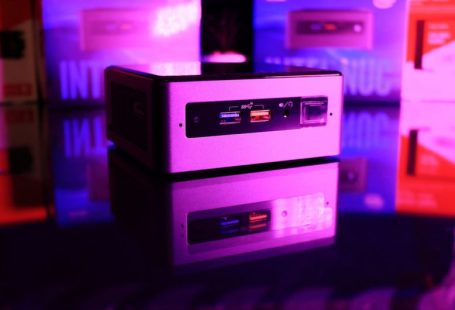Micro PCs, also known as mini PCs, have been gaining traction in recent years due to their compact size, energy efficiency, and impressive performance capabilities. As technology continues to evolve at a rapid pace, the future of micro PCs holds exciting trends and predictions that are set to revolutionize the way we work and interact with technology.
Rise of Edge Computing
One of the most significant trends in the future of micro PCs is the rise of edge computing. Edge computing involves processing data closer to where it is generated, rather than relying on centralized data centers. This approach offers lower latency, improved security, and increased efficiency. Micro PCs are well-suited for edge computing due to their small form factor and powerful processing capabilities. As more devices become interconnected through the Internet of Things (IoT), the demand for edge computing solutions powered by micro PCs is expected to skyrocket.
Enhanced Connectivity Options
In the future, micro PCs are likely to offer enhanced connectivity options to meet the growing demands of users. From built-in 5G capabilities to support for Wi-Fi 6, Bluetooth 5.0, and Thunderbolt 4, micro PCs will enable seamless connectivity across devices and networks. This will allow users to work and collaborate more efficiently, regardless of their location. Additionally, advancements in wireless charging technology may eliminate the need for cumbersome cables, further enhancing the portability and convenience of micro PCs.
Increased Focus on Sustainability
As environmental concerns become more prevalent, the future of micro PCs is expected to place a greater emphasis on sustainability. Manufacturers are likely to incorporate eco-friendly materials, energy-efficient components, and recyclable packaging into their products. Furthermore, advancements in power management and thermal design will contribute to reducing the carbon footprint of micro PCs. By prioritizing sustainability, the industry can make a positive impact on the environment while meeting the needs of socially responsible consumers.
Augmented Reality and Virtual Reality Integration
The integration of augmented reality (AR) and virtual reality (VR) technologies is poised to transform the capabilities of micro PCs in the future. From immersive gaming experiences to virtual meetings and training simulations, AR and VR applications will push the boundaries of what micro PCs can achieve. By incorporating powerful graphics processing units (GPUs) and high-resolution displays, micro PCs will deliver stunning visual experiences that rival traditional desktop computers. As AR and VR become more mainstream, micro PCs will play a crucial role in enabling these cutting-edge technologies.
Customization and Modular Design
In the future, micro PCs are likely to offer increased customization options and modular design features. Users will be able to personalize their devices with interchangeable components such as processors, memory modules, and storage drives. This flexibility will cater to a wide range of user preferences and requirements, allowing individuals to create a micro PC that suits their specific needs. Additionally, modular design will simplify upgrades and repairs, prolonging the lifespan of micro PCs and reducing electronic waste. By embracing customization and modularity, the future of micro PCs will empower users to tailor their computing experience to their liking.
The Evolution of Operating Systems
Operating systems play a crucial role in the performance and functionality of micro PCs. In the future, we can expect to see advancements in operating systems that are optimized for the unique characteristics of micro PCs. From streamlined interfaces to enhanced security features, next-generation operating systems will cater to the demands of modern users. Moreover, compatibility with a wide range of software applications and cloud services will further expand the capabilities of micro PCs. As operating systems evolve to meet the evolving needs of users, micro PCs will continue to be at the forefront of innovation in the computing industry.
Innovations in Cooling Technology
Efficient cooling is essential for maintaining the performance and reliability of micro PCs. In the future, we can anticipate innovations in cooling technology that will enhance the thermal management of these compact devices. From advanced heat sink designs to liquid cooling solutions, manufacturers will implement cutting-edge cooling technologies to ensure optimal performance under heavy workloads. By addressing thermal challenges, micro PCs will be able to deliver sustained performance without compromising on efficiency or reliability.
The Future Landscape of Micro PCs
As we look ahead to the future of micro PCs, it is clear that these compact devices will continue to evolve and innovate in response to emerging trends and technologies. Edge computing, enhanced connectivity options, sustainability, AR and VR integration, customization, operating system advancements, and cooling technology are just a few of the key areas that will shape the future landscape of micro PCs. With their versatility, performance, and portability, micro PCs are poised to play a central role in the way we work, connect, and create in the years to come. As technology continues to advance, we can expect micro PCs to remain at the forefront of innovation, driving new possibilities and reshaping the computing experience for users around the world.





